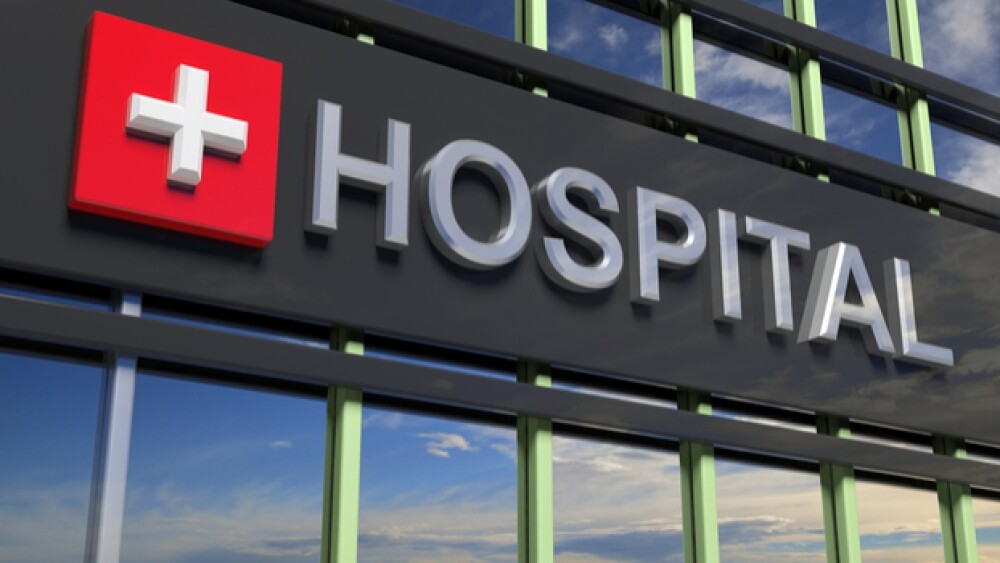In January, it was announced that five healthcare systems were launching a not-for-profit generic drug company. That company now has a name, Civica Rx.
In January, it was announced that five healthcare systems were launching a not-for-profit generic drug company. That company now has a name, Civica Rx.
The healthcare companies were the U.S. Department of Veterans Affairs (VA), Intermountain Healthcare, Ascension, SSM Health and Trinity Health. The endeavor has now expanded to seven health systems and three philanthropic groups. According to The Washington Post, “The company will focus initially on establishing price transparency and stable supplies for 14 generic drugs used in hospitals, without pressure from shareholders to issue dividends or push a stock price higher.”
Dan Liljenquist, chair of Civica Rx and chief strategy officer at Intermountain Healthcare in Utah, told The Post, “We’re trying to do the right thing—create a first-of-its-kind societal asset with one mission: to make sure essential generic medicines are affordable and available to everyone.”
The group now includes Mayo Clinic and HCA Healthcare, which in total represents approximately 500 hospitals. According to Liljenquist, the launching members already committed $100 million to the project. The approach will be to rely on long-term contracts member organizations sign stating they will buy a fixed percentage of their drug volume from Civica Rx.
Another member of the consortium, Providence St. Joseph Health, indicated that the criteria selected was to include drugs that had a 50 percent or greater price increase between 2014 and 2016 and essential drugs that were on national shortage lists.
Civica Rx’s first drug could launch in 2019. It is promising transparent pricing without rebates common to the industry.
Martin VanTrieste will be the chief executive officer of Civica. He came out of retirement for the role. He was previously senior vice president and chief quality officer for Amgen. He was one of the Advisory Committee members announced in January. Others included Madhu Balachandran, retired executive vice president of Global Operations for Amgen; Don Berwick, president emeritus and senior fellow, Institute for Healthcare Improvement, and former Centers for Medicare and Medicaid Services (CMS) administrator; Clayton Christensen, professor at the Harvard Business School and founder of Innosight; and Bob Kerrey, managing director, Allen & Company, and former Nebraska governor, U.S. senator and pharmacist.
VanTireste told The Post, “We want the marketplace to take care of itself and work, so if the entrance of Civica with 14 drugs—and the threat we can do more, pretty quickly, makes the marketplace work better, probably we don’t grow much bigger than that. But if the marketplace is broken and can’t be fixed by adding just 14 drugs,” Civica might add more.
Since the January announcement, health care groups representing about a third of the U.S.’s hospitals have expressed an interest in Civica.
The goal is at least two-fold. First, it’s to guarantee that the generic drugs remain available. According to ABC News, “Drug shortages have been widespread for more than a decade, particularly for inexpensive generic drugs, due to manufacturers consolidating, stopping production of low-profit medicines and having to fix manufacturing problems.”
The second goal is to decrease drug prices by approximately 20 percent. Liljenquist indicates the 14 drugs will also be sold to nonmember hospitals at slightly higher prices.
Civica will be headquartered in the Salt Lake City area and expects to manufacture some of the drugs itself and contract out others.
Amy Compton-Phillips, chief clinical officer of Providence St. Joseph Health, told The Post, “The risk of doing nothing is that we’ll continue with the same price escalations and shortages we’ve had. The risk of doing nothing to me seems higher than actually trying creative solutions to solve the problem.”
This news comes on the same day that Switzerland-based Novartis announced it was selling off approximately 300 of its generic drug products from its U.S. Sandoz unit to India-based Aurobindo Pharma for $1 billion. Sandoz will continue to exist, but focus on the higher-priced biosimilars, which are generic versions of newer biologic therapeutics and specialty medications. The deal will make Aurobindo the second-largest generic drug company in the U.S.





